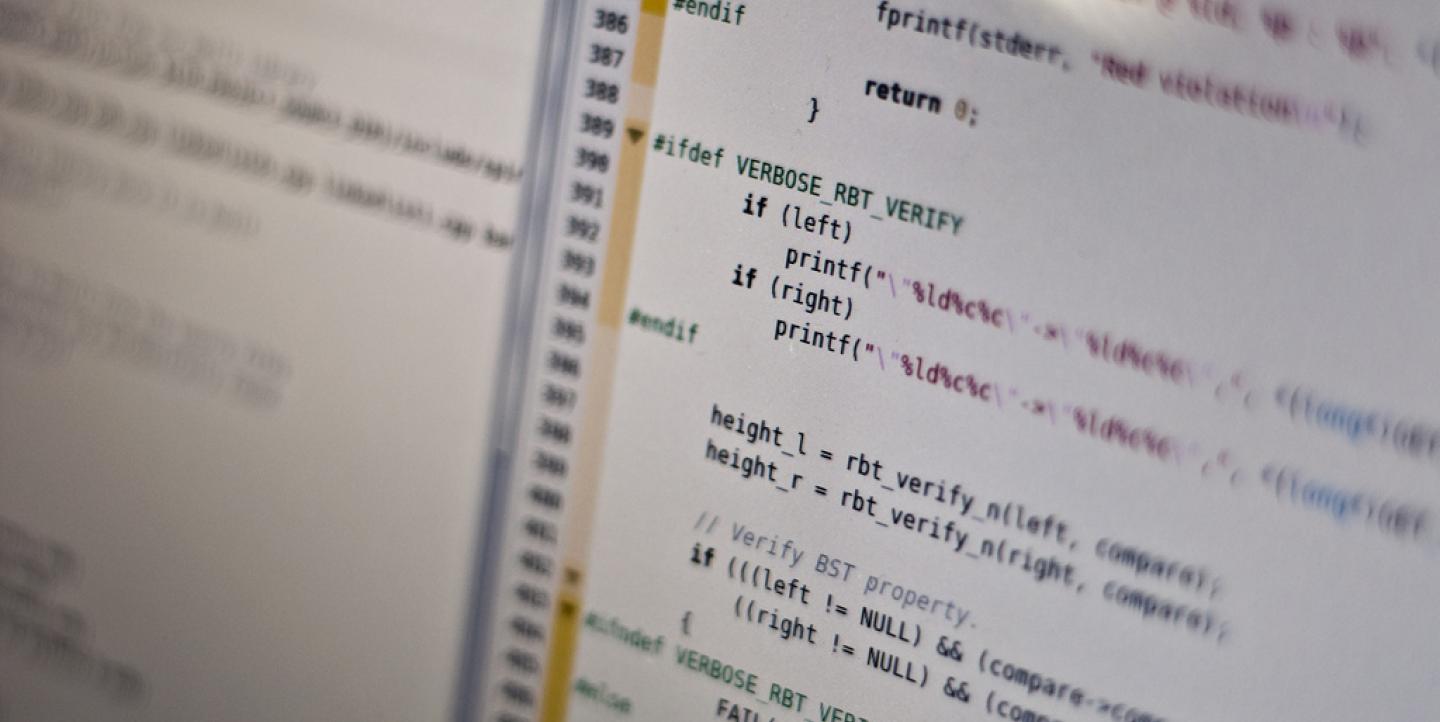Today’s journalists are expected to be jacks of all trades. Reporting, photography, video, audio, social media, editing and then some. Added to the mix, some are saying the next crucial skill is web development.
This is unwelcome news to a lot of journalists. Coding can seem like the modern day version of wizardry, and programmers themselves as being granted an innate ability for a skill that is inaccessible to everyone else.
However, a growing number of independent learning platforms (and general popular opinion) are demystifying programming. Journalists have more opportunities than ever to become computer savvy, without spending more money or taking time off work. Often, the biggest hurdle is a journalist’s own self-confidence.
One journalist who made peace with computer programing is Mallory Busch, a graduate of Northwestern University’s Medill School of Journalism and now audience engagement manager at ThinkCERCA in Chicago.
Busch entered journalism school with the aim of being a traditional reporter, focusing on words and multimedia. Her first brush with the world of development came when, while covering a story, she interviewed a journalist who spoke about his work combining journalism and computer science.
“I remember so clearly, I can feel myself in the room — writing down quotes, nodding along and thinking to myself, ‘There is no way in hell I would ever do this,’” she laughs.
“A while later, I was a finalist for an internship. And I was on the phone with this woman, and we were scheduling my interview. We’d picked a time and a date and everything, and I was about to hang up when she said, ‘Oh, you know some code, right?’”
“And I just said, ‘Oh yeah, totally!’” recalls Busch. “So now I had a week and a half to learn some code.’”
Starting off
Starting to learn programming can be overwhelming. Anyone who’s started knows that the first few times looking at raw code on a screen, it can be easy to be discouraged by anything beyond <!DOCTYPEhtml>.
But determined to follow through on her interview (and with little time to do so), Busch pushed past any initial misgivings and set to work learning the basics of programming.
“And after I started, I thought, ‘This is actually oddly fascinating and not that difficult!’’ says Busch. “Shockingly, I did not get the internship. But I spent the summer after my job going to cafes, learning CSS.”
Gradually, she branched out to other languages and eventually took her coding skills to score other internships, this time at Time Inc. and The Chicago Tribune.
Busch’s entry to programming may seem unnaturally simple — but it really can be as easy as taking time out of your day to go to a cafe and learn some CSS.
The payoff
The other misconception about learning to code is thinking that it means you should be aiming to make yourself a specialist in every language, a formidable task for anybody.
However, as a journalist, your main skill should still be knowing how to tell a story. Learning to code should augment that, not replace it.
“I think once you know what can be done with code — you don’t have to know exactly how to do it —but once you know what can be done, it opens your mind to the possibilities,” explains Busch.
Increasingly, journalists are working with programmers to design interactive stories on the web, and if you know what’s possible before you get to the editing desk (or just as important, what’s not possible), you can flesh out a much more dynamic story and design your reporting process around that.
“For a storyteller,” advised Busch, “Having your imagination opened up can have a fundamental impact on your storytelling abilities.”
Free learning resources
Codecademy: Codecademy is where many people go to test the waters. Free, hands on and basic, it offers constant positive reinforcement and visible progress. Some say it is limited in its capacity to teach you real coding, but is certainly a great place to start and convince yourself that one day, you’ll understand what the difference between div, class and id is.
Learn at Knight Lab: Northwestern’s Knight Lab is where Busch (and one of own members of HackPack) lost their fear of tech in journalism, and it offers free and friendly tutorials for aspiring techies.
Khan Academy: Anyone who’s used Khan Academy knows subjects are less scary to tackle when walked through by one of their friendly instructors.
GitHub and StackOverflow: For those of you who’d rather jump in at the deep end, the amazing thing about programming is the huge and friendly community involved. GitHub and StackOverflow are amazing resources for projects looking for collaborators and forums bursting with every question you could possibly have.
This post is an abridged version of a post that originally appeared on HackPack.press. It is republished with permission.
Main image CC-licensed by Flickr via Michael Himbeault.


